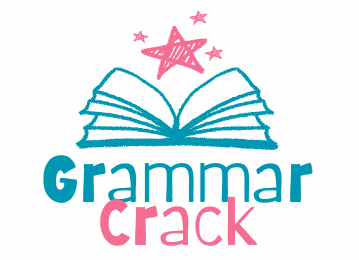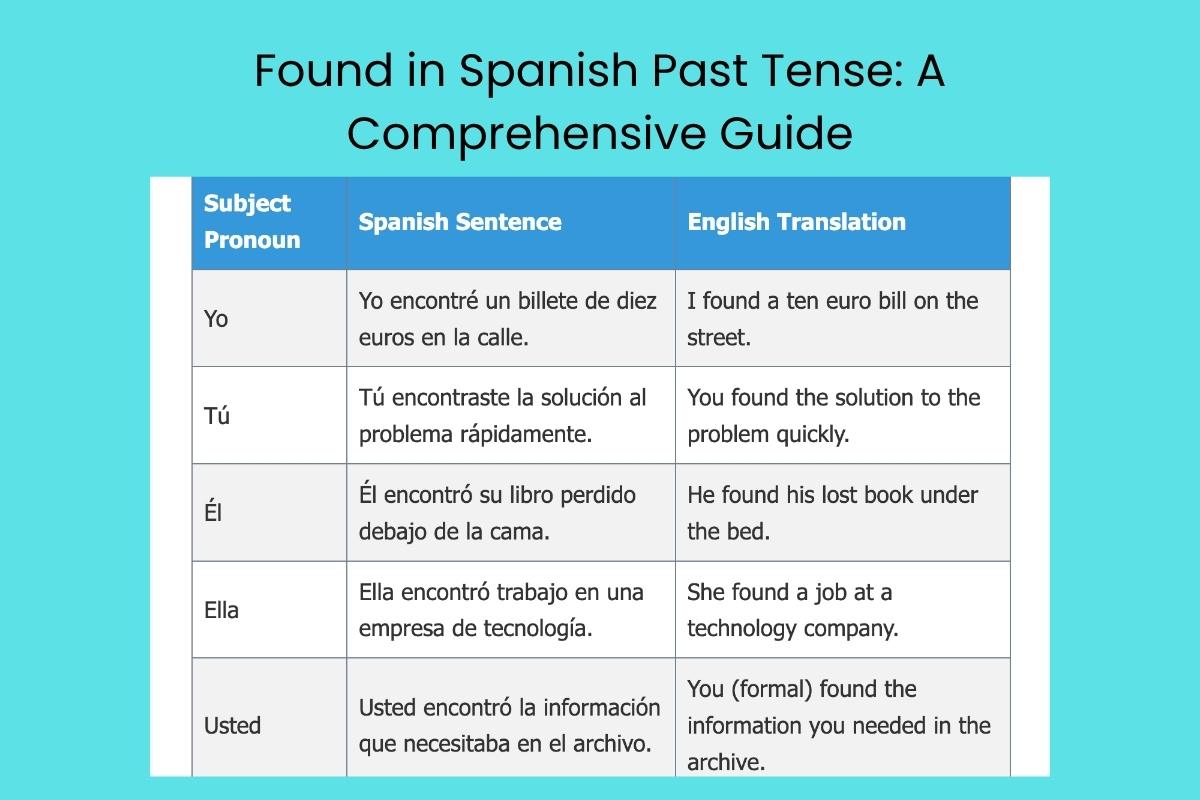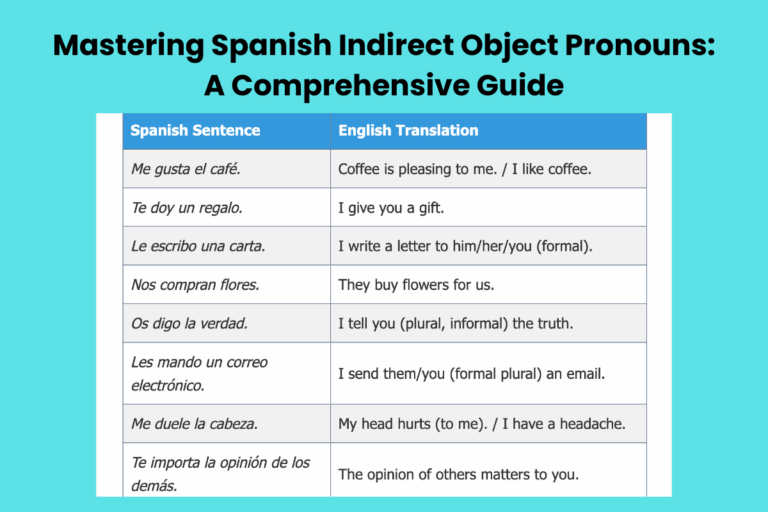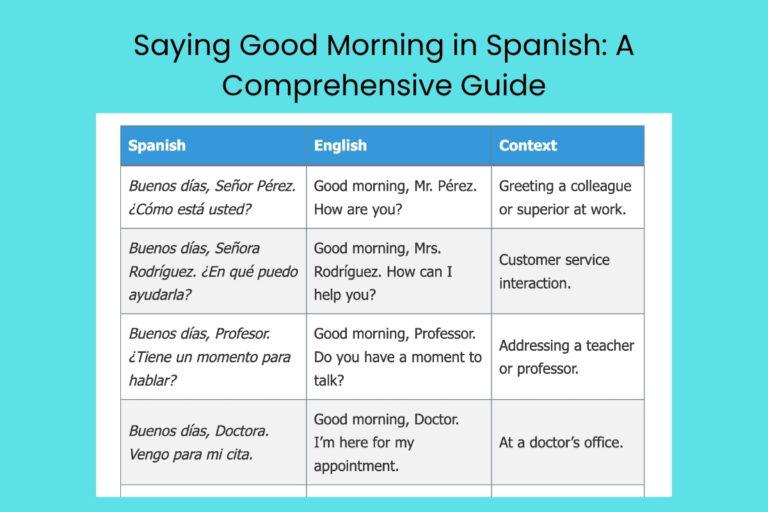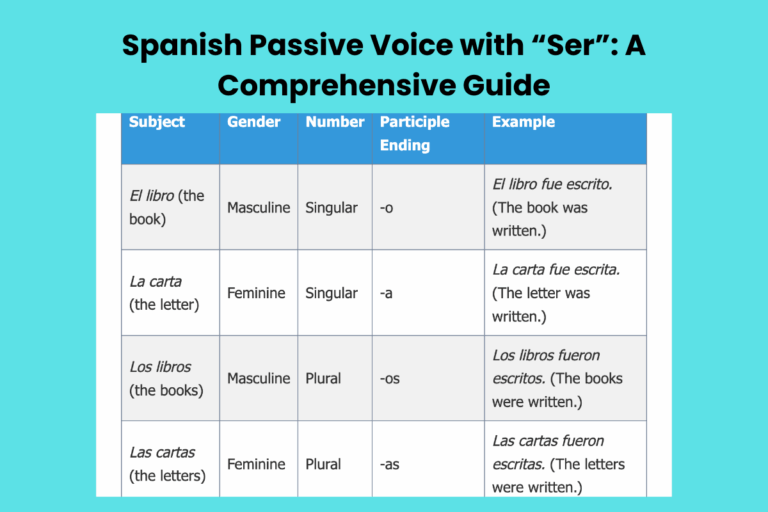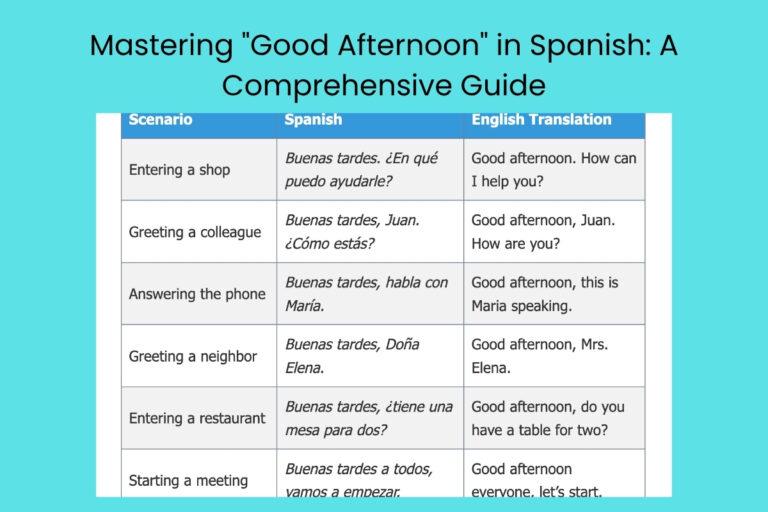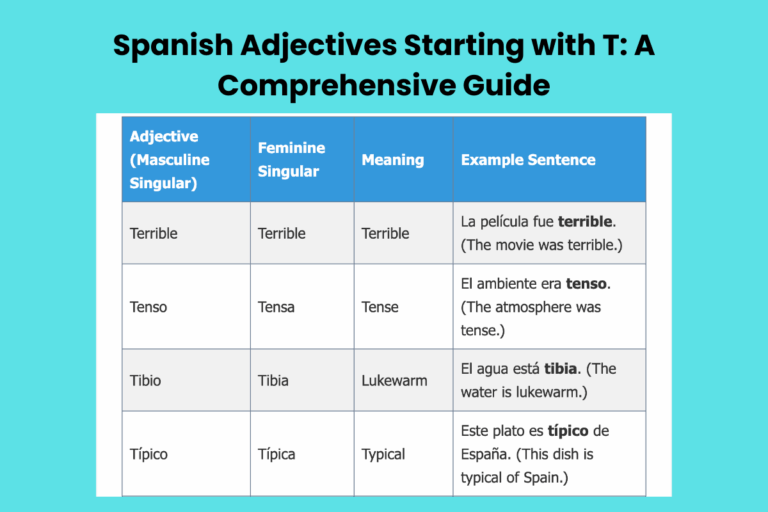Found in Spanish Past Tense: A Comprehensive Guide
Understanding how to express “found” in Spanish past tenses is crucial for conveying when something was discovered or located. This guide provides an in-depth look at the various Spanish past tenses and how they are used to translate the English word “found.” Whether you’re a beginner or an advanced learner, this comprehensive explanation, complete with examples and practice exercises, will help you master this essential grammar concept, enabling you to communicate more effectively and accurately in Spanish.
This guide is designed for students learning Spanish, travelers who need to describe past events, and anyone seeking to improve their understanding of Spanish grammar. By the end of this article, you will be able to confidently use the appropriate past tense to express “found” in a variety of contexts.
Table of Contents
- Introduction
- Definition: “Found” in Spanish Past Tense
- Structural Breakdown of Spanish Past Tenses
- Usage Rules for “Found” in Spanish Past Tenses
- Examples of “Found” in Spanish Past Tenses
- Common Mistakes When Using “Found” in Spanish Past Tenses
- Practice Exercises
- Advanced Topics
- Frequently Asked Questions (FAQ)
- Conclusion
Definition: “Found” in Spanish Past Tense
The English word “found” refers to the past tense of the verb “to find,” meaning to discover or locate something. In Spanish, expressing “found” requires the use of different past tenses depending on the context. The key verb to consider is encontrar (to find). The choice of tense depends on whether you want to emphasize a completed action (preterite), a habitual action in the past (imperfect), a past action that is relevant to the present (perfect), or an action that occurred before another past action (pluperfect). Understanding these nuances is essential for accurate communication.
The Spanish verb encontrar is a regular -ar verb, but its past tense conjugations vary depending on the specific past tense being used. The preterite, imperfect, perfect, and pluperfect tenses each have distinct forms and usages that must be understood to correctly express “found” in Spanish.
Structural Breakdown of Spanish Past Tenses
Spanish has several past tenses, each with its own structure and usage. To accurately translate “found,” it’s essential to understand these tenses and their specific conjugations of the verb encontrar.
Preterite Tense
The preterite tense (pretérito indefinido) is used to describe completed actions in the past. It is used for actions that had a definite beginning and end. For the verb encontrar, the preterite conjugations are as follows:
- Yo encontré (I found)
- Tú encontraste (You found)
- Él/Ella/Usted encontró (He/She/You (formal) found)
- Nosotros/Nosotras encontramos (We found)
- Vosotros/Vosotras encontrasteis (You (plural, informal) found)
- Ellos/Ellas/Ustedes encontraron (They/You (plural, formal) found)
The preterite tense is crucial for narrating events that occurred at a specific point in the past.
Imperfect Tense
The imperfect tense (pretérito imperfecto) is used to describe ongoing or habitual actions in the past. It is also used to set the scene or provide background information. For the verb encontrar, the imperfect conjugations are:
- Yo encontraba (I used to find/I was finding)
- Tú encontrabas (You used to find/You were finding)
- Él/Ella/Usted encontraba (He/She/You (formal) used to find/was finding)
- Nosotros/Nosotras encontrábamos (We used to find/We were finding)
- Vosotros/Vosotras encontrabais (You (plural, informal) used to find/were finding)
- Ellos/Ellas/Ustedes encontraban (They/You (plural, formal) used to find/were finding)
The imperfect tense is used for actions without a defined ending or for describing repeated actions.
Perfect Tense (Pretérito Perfecto)
The perfect tense (pretérito perfecto compuesto) is used to describe actions that have been completed recently or are still relevant to the present. It is formed using the auxiliary verb haber (to have) and the past participle of encontrar (encontrado). The conjugations are:
- Yo he encontrado (I have found)
- Tú has encontrado (You have found)
- Él/Ella/Usted ha encontrado (He/She/You (formal) has found)
- Nosotros/Nosotras hemos encontrado (We have found)
- Vosotros/Vosotras habéis encontrado (You (plural, informal) have found)
- Ellos/Ellas/Ustedes han encontrado (They/You (plural, formal) have found)
The perfect tense connects a past action to the present moment, indicating its ongoing relevance.
Pluperfect Tense (Pretérito Pluscuamperfecto)
The pluperfect tense (pretérito pluscuamperfecto) is used to describe an action that had been completed before another action in the past. It is also formed using the auxiliary verb haber (to have) in the imperfect tense and the past participle of encontrar (encontrado). The conjugations are:
- Yo había encontrado (I had found)
- Tú habías encontrado (You had found)
- Él/Ella/Usted había encontrado (He/She/You (formal) had found)
- Nosotros/Nosotras habíamos encontrado (We had found)
- Vosotros/Vosotras habíais encontrado (You (plural, informal) had found)
- Ellos/Ellas/Ustedes habían encontrado (They/You (plural, formal) had found)
The pluperfect tense is used to establish a sequence of past events, indicating that one action preceded another.
Usage Rules for “Found” in Spanish Past Tenses
Each Spanish past tense has specific usage rules that determine when it is appropriate to use it. Understanding these rules is crucial for accurately conveying the meaning of “found” in different contexts.
Preterite Usage Rules
The preterite tense is used for:
- Actions that started and ended at a specific time in the past.
- Single, completed actions.
- Actions that occurred within a defined period.
- To express the main events in a narrative.
Example: Ayer encontré mis llaves. (Yesterday I found my keys.) This indicates a completed action at a specific time.
Imperfect Usage Rules
The imperfect tense is used for:
- Ongoing actions in the past.
- Habitual actions in the past.
- Describing states or conditions in the past.
- Setting the scene or providing background information.
Example: Siempre encontraba monedas en la calle cuando era niño. (I always used to find coins in the street when I was a child.) This describes a habitual action in the past.
Perfect Tense Usage Rules
The perfect tense is used for:
- Actions that have been completed recently.
- Actions that have a connection to the present.
- Experiences that have occurred in one’s life.
Example: Hoy he encontrado un nuevo trabajo. (Today I have found a new job.) This indicates an action completed recently with present relevance.
Pluperfect Tense Usage Rules
The pluperfect tense is used for:
- Actions that were completed before another action in the past.
- To indicate a prior event in a narrative.
Example: Ya había encontrado mi pasaporte cuando me di cuenta de que había perdido mi billetera. (I had already found my passport when I realized I had lost my wallet.) This indicates an action completed before another past action.
Examples of “Found” in Spanish Past Tenses
To illustrate the usage of “found” in Spanish past tenses, here are several examples categorized by tense.
Preterite Tense Examples
The following table provides examples of the verb ‘encontrar’ in the preterite tense, demonstrating its use in describing completed actions in the past. Each example showcases a different subject pronoun to illustrate the full range of conjugations.
| Subject Pronoun | Spanish Sentence | English Translation |
|---|---|---|
| Yo | Yo encontré un billete de diez euros en la calle. | I found a ten euro bill on the street. |
| Tú | Tú encontraste la solución al problema rápidamente. | You found the solution to the problem quickly. |
| Él | Él encontró su libro perdido debajo de la cama. | He found his lost book under the bed. |
| Ella | Ella encontró trabajo en una empresa de tecnología. | She found a job at a technology company. |
| Usted | Usted encontró la información que necesitaba en el archivo. | You (formal) found the information you needed in the archive. |
| Nosotros | Nosotros encontramos un buen restaurante cerca del hotel. | We found a good restaurant near the hotel. |
| Vosotros | Vosotros encontrasteis las llaves en el cajón. | You (plural, informal) found the keys in the drawer. |
| Ellos | Ellos encontraron un tesoro escondido en la isla. | They found a hidden treasure on the island. |
| Ellas | Ellas encontraron la respuesta correcta en el examen. | They (feminine) found the correct answer on the exam. |
| Ustedes | Ustedes encontraron el camino correcto hacia la ciudad. | You (plural, formal) found the right way to the city. |
| Yo | Yo encontré una vieja foto en el álbum. | I found an old photo in the album. |
| Tú | Tú encontraste un error en el documento. | You found an error in the document. |
| Él | Él encontró una oportunidad de negocio. | He found a business opportunity. |
| Ella | Ella encontró consuelo en sus amigos. | She found comfort in her friends. |
| Usted | Usted encontró la salida de emergencia. | You (formal) found the emergency exit. |
| Nosotros | Nosotros encontramos una solución pacífica. | We found a peaceful solution. |
| Vosotros | Vosotros encontrasteis la verdad. | You (plural, informal) found the truth. |
| Ellos | Ellos encontraron un nuevo hogar. | They found a new home. |
| Ellas | Ellas encontraron apoyo mutuo. | They (feminine) found mutual support. |
| Ustedes | Ustedes encontraron la inspiración. | You (plural, formal) found inspiration. |
| Yo | Yo encontré la paz interior. | I found inner peace. |
| Tú | Tú encontraste tu vocación. | You found your calling. |
| Él | Él encontró su propósito en la vida. | He found his purpose in life. |
| Ella | Ella encontró la felicidad en las pequeñas cosas. | She found happiness in the small things. |
| Usted | Usted encontró la respuesta correcta. | You (formal) found the right answer. |
Imperfect Tense Examples
The following table provides examples of the verb ‘encontrar’ in the imperfect tense, demonstrating its use in describing ongoing or habitual actions in the past. These examples provide context and background information about situations where something was typically found.
| Subject Pronoun | Spanish Sentence | English Translation |
|---|---|---|
| Yo | Yo encontraba monedas en el bolsillo de mi abrigo viejo. | I used to find coins in the pocket of my old coat. |
| Tú | Tú encontrabas siempre la manera de hacerme reír. | You always used to find a way to make me laugh. |
| Él | Él encontraba paz en la naturaleza. | He used to find peace in nature. |
| Ella | Ella encontraba consuelo en la música. | She used to find comfort in music. |
| Usted | Usted encontraba soluciones creativas a los problemas. | You (formal) used to find creative solutions to problems. |
| Nosotros | Nosotros encontrábamos difícil concentrarnos en clase. | We used to find it difficult to concentrate in class. |
| Vosotros | Vosotros encontrabais alegría en las pequeñas cosas. | You (plural, informal) used to find joy in the small things. |
| Ellos | Ellos encontraban fascinante la historia antigua. | They used to find ancient history fascinating. |
| Ellas | Ellas encontraban inspiración en el arte. | They (feminine) used to find inspiration in art. |
| Ustedes | Ustedes encontraban interesante el debate político. | You (plural, formal) used to find the political debate interesting. |
| Yo | Yo encontraba excusas para no ir al gimnasio. | I used to find excuses not to go to the gym. |
| Tú | Tú encontrabas sentido a las cosas más simples. | You used to find meaning in the simplest things. |
| Él | Él encontraba placer en la lectura. | He used to find pleasure in reading. |
| Ella | Ella encontraba belleza en todos lados. | She used to find beauty everywhere. |
| Usted | Usted encontraba la respuesta en los libros. | You (formal) used to find the answer in books. |
| Nosotros | Nosotros encontrábamos la felicidad en familia. | We used to find happiness in family. |
| Vosotros | Vosotros encontrabais la aventura en los viajes. | You (plural, informal) used to find adventure in travels. |
| Ellos | Ellos encontraban la solución en el trabajo en equipo. | They used to find the solution in teamwork. |
| Ellas | Ellas encontraban la fuerza en la amistad. | They (feminine) used to find strength in friendship. |
| Ustedes | Ustedes encontraban la oportunidad en cada desafío. | You (plural, formal) used to find opportunity in every challenge. |
| Yo | Yo encontraba refugio en mi hogar. | I used to find refuge in my home. |
| Tú | Tú encontrabas satisfacción en ayudar a otros. | You used to find satisfaction in helping others. |
| Él | Él encontraba inspiración en la música clásica. | He used to find inspiration in classical music. |
| Ella | Ella encontraba tranquilidad en la meditación. | She used to find tranquility in meditation. |
| Usted | Usted encontraba respuestas en la investigación científica. | You (formal) used to find answers in scientific research. |
Perfect Tense Examples
The following table provides examples of the verb ‘encontrar’ in the perfect tense, demonstrating its use in describing actions that have been completed recently or that have a connection to the present. The perfect tense emphasizes the relevance of the past action to the current moment.
| Subject Pronoun | Spanish Sentence | English Translation |
|---|---|---|
| Yo | Yo he encontrado las llaves que había perdido esta mañana. | I have found the keys that I had lost this morning. |
| Tú | Tú has encontrado un nuevo pasatiempo interesante. | You have found a new interesting hobby. |
| Él | Él ha encontrado trabajo después de meses de búsqueda. | He has found a job after months of searching. |
| Ella | Ella ha encontrado la paz interior después de la meditación. | She has found inner peace after meditation. |
| Usted | Usted ha encontrado una solución innovadora al problema. | You (formal) have found an innovative solution to the problem. |
| Nosotros | Nosotros hemos encontrado un nuevo camino en nuestras vidas. | We have found a new path in our lives. |
| Vosotros | Vosotros habéis encontrado una forma de superar los desafíos. | You (plural, informal) have found a way to overcome the challenges. |
| Ellos | Ellos han encontrado un tesoro escondido en la excavación. | They have found a hidden treasure in the excavation. |
| Ellas | Ellas han encontrado la inspiración en la naturaleza. | They (feminine) have found inspiration in nature. |
| Ustedes | Ustedes han encontrado un nuevo cliente en la conferencia. | You (plural, formal) have found a new client at the conference. |
| Yo | Yo he encontrado un nuevo libro para leer. | I have found a new book to read. |
| Tú | Tú has encontrado un nuevo amigo en la clase. | You have found a new friend in class. |
| Él | Él ha encontrado un nuevo propósito en la vida. | He has found a new purpose in life. |
| Ella | Ella ha encontrado una nueva pasión por la jardinería. | She has found a new passion for gardening. |
| Usted | Usted ha encontrado una nueva perspectiva sobre el tema. | You (formal) have found a new perspective on the subject. |
| Nosotros | Nosotros hemos encontrado una nueva forma de colaborar. | We have found a new way to collaborate. |
| Vosotros | Vosotros habéis encontrado una nueva oportunidad de crecimiento. | You (plural, informal) have found a new growth opportunity. |
| Ellos | Ellos han encontrado una nueva forma de resolver el problema. | They have found a new way to solve the problem. |
| Ellas | Ellas han encontrado una nueva forma de expresar su creatividad. | They (feminine) have found a new way to express their creativity. |
| Ustedes | Ustedes han encontrado una nueva forma de conectarse con la comunidad. | You (plural, formal) have found a new way to connect with the community. |
| Yo | Yo he encontrado una solución a mi problema. | I have found a solution to my problem. |
| Tú | Tú has encontrado la felicidad. | You have found happiness. |
| Él | Él ha encontrado su camino. | He has found his way. |
| Ella | Ella ha encontrado la inspiración. | She has found inspiration. |
| Usted | Usted ha encontrado la respuesta. | You (formal) have found the answer. |
Pluperfect Tense Examples
The following table provides examples of the verb ‘encontrar’ in the pluperfect tense, demonstrating its use in describing an action that had been completed before another action in the past. The pluperfect tense helps establish a sequence of events, indicating which action occurred earlier.
| Subject Pronoun | Spanish Sentence | English Translation |
|---|---|---|
| Yo | Yo ya había encontrado mi teléfono cuando me di cuenta de que había perdido mis llaves. | I had already found my phone when I realized I had lost my keys. |
| Tú | Tú habías encontrado la solución antes de que yo siquiera empezara a pensar en el problema. | You had found the solution before I even started thinking about the problem. |
| Él | Él había encontrado trabajo antes de graduarse de la universidad. | He had found a job before graduating from university. |
| Ella | Ella había encontrado la paz interior antes de comenzar su viaje espiritual. | She had found inner peace before starting her spiritual journey. |
| Usted | Usted había encontrado una solución innovadora antes de que el equipo pudiera reunirse. | You (formal) had found an innovative solution before the team could meet. |
| Nosotros | Nosotros habíamos encontrado el camino correcto antes de que comenzara la tormenta. | We had found the right path before the storm started. |
| Vosotros | Vosotros habíais encontrado una forma de superar los desafíos antes de que surgieran nuevos problemas. | You (plural, informal) had found a way to overcome the challenges before new problems arose. |
| Ellos | Ellos habían encontrado el tesoro escondido antes de que llegaran los arqueólogos. | They had found the hidden treasure before the archaeologists arrived. |
| Ellas | Ellas habían encontrado la inspiración en la naturaleza antes de comenzar su obra maestra. | They (feminine) had found inspiration in nature before starting their masterpiece. |
| Ustedes | Ustedes habían encontrado un nuevo cliente antes de que terminara la conferencia. | You (plural, formal) had found a new client before the conference ended. |
| Yo | Yo había encontrado una nueva forma de relajarme antes de empezar a trabajar. | I had found a new way to relax before starting to work. |
| Tú | Tú habías encontrado una buena oferta antes de que se agotaran los boletos. | You had found a good deal before the tickets sold out. |
| Él | Él había encontrado una solución al problema antes de que se volviera más complicado. | He had found a solution to the problem before it became more complicated. |
| Ella | Ella había encontrado un nuevo amigo antes de mudarse a otra ciudad. | She had found a new friend before moving to another city. |
| Usted | Usted había encontrado la información necesaria antes de que fuera demasiado tarde. | You (formal) had the necessary information before it was too late. |
| Nosotros | Nosotros habíamos encontrado un lugar seguro antes de que empezara a llover. | We had found a safe place before it started raining. |
| Vosotros | Vosotros habíais encontrado una manera de resolver el conflicto antes de que empeorara. | You (plural, informal) had found a way to resolve the conflict before it got worse. |
| Ellos | Ellos habían encontrado la verdad antes de que se difundieran los rumores. | They had found the truth before the rumors spread. |
| Ellas | Ellas habían encontrado la fuerza para seguir adelante antes de enfrentar nuevos desafíos. | They (feminine) had found the strength to move forward before facing new challenges. |
| Ustedes | Ustedes habían encontrado la inspiración para crear algo nuevo antes de que se sintieran desanimados. | You (plural, formal) had found the inspiration to create something new before they felt discouraged. |
| Yo | Yo había encontrado mi camino antes de perderme. | I had found my way before getting lost. |
| Tú | Tú habías encontrado la felicidad antes de la tristeza. | You had found happiness before the sadness. |
| Él | Él había encontrado el amor antes del desengaño. | He had found love before disappointment. |
| Ella | Ella había encontrado la esperanza antes de la desesperación. | She had found hope before despair. |
| Usted | Usted había encontrado la respuesta antes de la pregunta. | You (formal) had found the answer before the question. |
Common Mistakes When Using “Found” in Spanish Past Tenses
One common mistake is confusing the preterite and imperfect tenses. For example, using the imperfect when a specific, completed action is meant, or vice versa.
Another mistake is using the wrong auxiliary verb with the perfect and pluperfect tenses. It is important to remember that “haber” is the correct auxiliary verb.
Incorrect: Ayer encontraba mis llaves. (Yesterday I was finding my keys.)
Correct: Ayer encontré mis llaves. (Yesterday I found my keys.)
Incorrect: Yo soy encontrado. (I have found.)
Correct: Yo he encontrado. (I have found.)
Practice Exercises
The following exercises will help you practice using “found” in Spanish past tenses. Choose the correct tense for each sentence.
Exercise 1: Preterite vs. Imperfect
Choose the correct tense (preterite or imperfect) to complete each sentence.
| # | Sentence | Correct Answer |
|---|---|---|
| 1 | Ayer yo _____ (encontrar) un libro interesante en la biblioteca. | encontré |
| 2 | Cuando era niño, siempre _____ (encontrar) monedas en la calle. | encontraba |
| 3 | La semana pasada, ella _____ (encontrar) trabajo en una nueva empresa. | encontró |
| 4 | Antes, nosotros _____ (encontrar) difícil aprender español. | encontrábamos |
| 5 | El año pasado, ellos _____ (encontrar) un tesoro en la excavación. | encontraron |
| 6 | De joven, tú _____ (encontrar) placer en la lectura de novelas. | encontrabas |
| 7 | En aquel entonces, él _____ (encontrar) consuelo en la música. | encontraba |
| 8 | El otro día, nosotros _____ (encontrar) una solución al problema. | encontramos |
| 9 | Antes, vosotros _____ (encontrar) alegría en las pequeñas cosas. | encontrabais |
| 10 | El mes pasado, ellos _____ (encontrar) un nuevo hogar. | encontraron |
Exercise 2: Perfect vs. Pluperfect
Choose the correct tense (perfect or pluperfect) to complete each sentence.
| # | Sentence | Correct Answer | |
|---|---|---|---|
| 1 | Yo _____ (encontrar) las llaves antes de salir de casa. | había encontrado | |
| 2 | Hoy, tú _____ (encontrar) un nuevo amigo en la clase de español. | has encontrado | |
| 3 | Él _____ (encontrar) trabajo después de buscar durante meses. | ha encontrado | |
| 4 | Nosotros _____ (encontrar) una solución antes de que el problema empeorara. | habíamos encontrado | |
| 5 | Vosotros | Vosotros _____ (encontrar) una nueva forma de colaborar en el proyecto. | habéis encontrado |
| 6 | Ellos _____ (encontrar) el tesoro antes de que llegaran los arqueólogos. | habían encontrado | |
| 7 | Yo _____ (encontrar) la paz interior después de meditar. | he encontrado | |
| 8 | Tú _____ (encontrar) una buena oferta antes de que se agotaran los boletos. | habías encontrado | |
| 9 | Ella _____ (encontrar) inspiración en la naturaleza antes de pintar su obra maestra. | había encontrado | |
| 10 | Nosotros _____ (encontrar) un lugar seguro antes de que empezara la tormenta. | habíamos encontrado |
Exercise 3: Mixed Past Tenses
Choose the correct past tense (preterite, imperfect, perfect, or pluperfect) to complete each sentence.
| # | Sentence | Correct Answer |
|---|---|---|
| 1 | Ayer, yo _____ (encontrar) un viejo amigo en el parque. | encontré |
| 2 | Cuando era joven, siempre _____ (encontrar) tiempo para leer. | encontraba |
| 3 | Hoy, nosotros _____ (encontrar) una solución al problema. | hemos encontrado |
| 4 | Antes de que llegaras, yo ya _____ (encontrar) las llaves. | había encontrado |
| 5 | La semana pasada, ella _____ (encontrar) un nuevo trabajo. | encontró |
| 6 | De niño, tú _____ (encontrar) placer en jugar al fútbol. | encontrabas |
| 7 | Este mes, él _____ (encontrar) una nueva pasión por la cocina. | ha encontrado |
| 8 | Antes de que comenzara la reunión, nosotros _____ (encontrar) una solución. | habíamos encontrado |
| 9 | El año pasado, vosotros _____ (encontrar) una nueva forma de colaborar. | encontrasteis |
| 10 | Ellos _____ (encontrar) el tesoro después de buscar durante meses. | encontraron |
Advanced Topics
For advanced learners, understanding how “found” interacts with reflexive verbs and the subjunctive mood can further refine your Spanish skills.
Reflexive Verbs and “Found”
The verb encontrarse is a reflexive form of encontrar, meaning “to find oneself” or “to meet.” In past tenses, it indicates a state or condition in which someone found themselves. Here are some examples:
- Preterite: Me encontré perdido en la ciudad. (I found myself lost in the city.)
- Imperfect: Siempre me encontraba cansado después del trabajo. (I always found myself tired after work.)
- Perfect: Me he encontrado más feliz desde que empecé a meditar. (I have found myself happier since I started meditating.)
- Pluperfect: Ya me había encontrado más tranquilo antes de que llegaran las noticias. (I had already found myself calmer before the news arrived.)
Subjunctive Mood and “Found”
The subjunctive mood is used in situations of doubt, desire, or uncertainty. When expressing “found” in the subjunctive mood, it often appears in dependent clauses.
Here are some examples:
- Dudaba que él encontrara una solución. (I doubted that he would find a solution.)
- Esperaba que ella encontrara la felicidad. (I hoped that she would find happiness.)
- Era importante que nosotros encontráramos un nuevo camino. (It was important that we find a new path.)
Frequently Asked Questions (FAQ)
Conclusion
Mastering the use of “found” in Spanish past tenses is essential for effective communication. By understanding the nuances of the preterite, imperfect, perfect, and pluperfect tenses, you can accurately convey when something was discovered or located in the past.
With the examples and exercises provided in this guide, you are now well-equipped to use these tenses confidently and correctly in your Spanish conversations and writing. Keep practicing, and you will continue to improve your fluency and accuracy.
